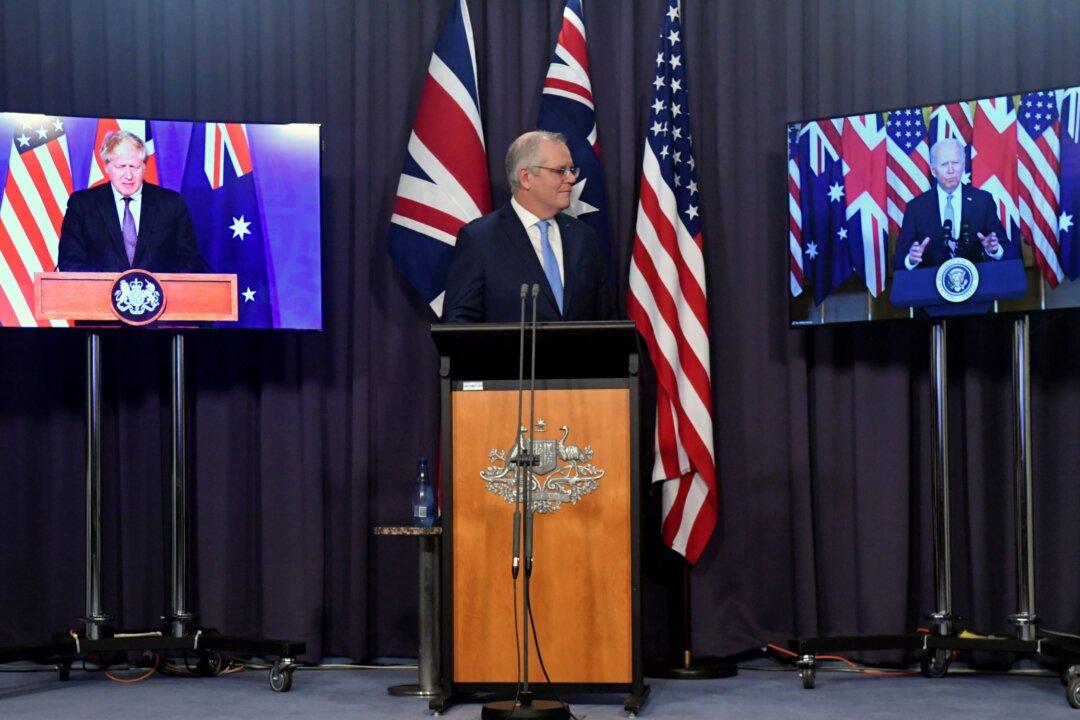France is threatening to block discussions between the European Union and Australia on a free trade agreement after the Australian government rescinded a deal with Paris to purchase French submarines.
The move comes a few days after France withdrew its ambassadors from Australia and the United States after the United States and Australia jointly announced a partnership with the United Kingdom to provide Australia with U.S. nuclear submarine technology.





